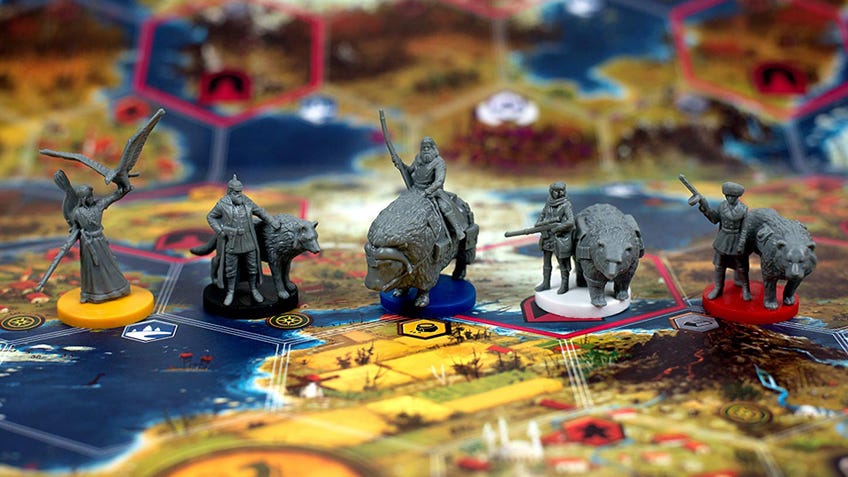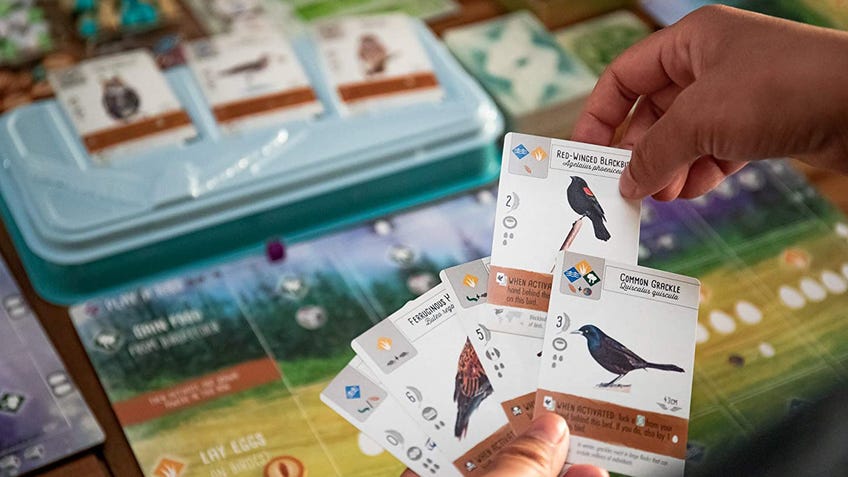Wingspan publisher commits to not use “any form of AI to replace or augment” creative work, admits there are “grey areas”
“What about a first-time designer on a shoestring budget?”
A co-founder of Stonemaier Games, the publisher responsible for releasing board games like Wingspan and Scythe, has confirmed that the company will not be using AI in the creation of its titles.
AI has become a more prevalent talking point in the tabletop gaming industry and community, with several companies discussing its use or already implementing it in its releases. For example, Stronghold Games - one of the publishers behind the Terraforming Mars series of games - recently came under fire for using AI in an expansion, with the studio confirming its use of AI and defending its decision: “We (Stronghold Games) have and will continue to leverage AI-generated content.”
The CEO of Hasbro, the owner of Wizards of the Coast, the company behind both tabletop roleplaying game Dungeons & Dragons and trading card game Magic: The Gathering, Chris Cocks recently commenting on the use of AI in the tabletop gaming industry - expressing an interest in using tools such as Chat GPT and Midjourney to “mine” the 50 years of content under the company’s belt in order to leverage “literally thousands of adventures,” and “more than 15,000 cards.”
Stonemaier Games recently released a statement on its website from one of its co-founders, Jamey Stegmaier - who’s also the designer behind the board game Scythe - regarding the company’s approach towards the use of AI. Stegmaier, when commenting on his personal views towards AI, stated: “frankly, I’m not interested.”
As a company, Stegmaier confirmed that “Stonemaier Games does not, has not, and will not use any form of AI to replace or augment creative work. If we’re creating something, we want it built from the ground up by talented people from different backgrounds, perspectives and cultures, not an algorithm (especially not an algorithm that borrows without permission or at least proper credit from the original artists.)”

Update: This article previously did not include elements from Stonemaier's statement regarding other AI "grey areas", they have since been added.
Despite Stonemaier’s stance, Stegmaier admits that there may be some “grey areas,” when it comes to using AI in the tabletop gaming industry. The co-founder and designer cited Stonemaier’s regular inclusion of AI opponents in the digital board game versions of its titles like Scythe Digital and Wingspan Digital. Other examples of "grey areas" Stegmaier gave were in AI art serving the same purpose of placeholder art - such as when he was designing Viticulture - during the prototype phase of a board game's design, as well as the use of site-specific search engines to assist with finding older articles on the Stonemaier website, before removing it due to its effects on the website's code.
Stegmaier also highlighted Stonemaier’s “privilege” in being able to pay its creators and speculated that “a first-time designer looking to self publish their game on a shoestring budget,” might not have the same options.


